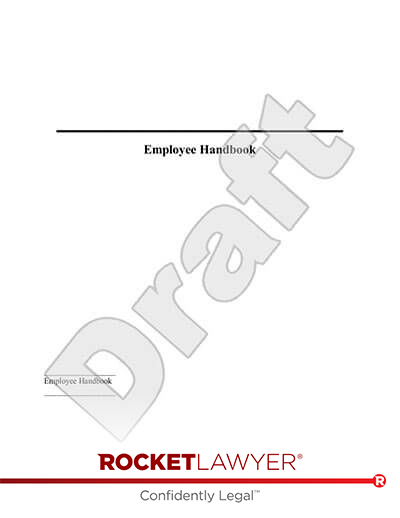Do pets in the office pose a COVID-19 risk?
Though some news stories have reported pets can get infected with COVID-19, the CDC indicates that this only occurs when those pets have close contact with infected individuals. The virus can spread from people to animals, but the risk of it spreading from animals to people is very low.
Pets in the office do not currently appear to pose a COVID-19 risk to your workers. Still, you may want to ask your employees who do bring pets to the office to limit their animal's contact with people around the office.
What pet policies should be revised in light of COVID-19 restrictions?
If you decide to allow pets in the workplace, be sure to update your policies to indicate that decision. But be mindful that pets in the workplace may make it more difficult to enforce social distancing rules if the pets are overly sociable.
If you already allow pets, you may want to update your policy to require a liability waiver and indemnification agreement be signed by the pet owner for any issues caused by their pet. This could provide protection should there be exposure to the virus for the pet, or another sort of more typical incident. Pet policies, in general, might not need to be changed in light of COVID-19 restrictions because those policies generally do not apply to pets, and pets pose minimal risk, if any, when pet policies are followed.
How do you craft an effective pet policy for your workplace?
If you want to allow pets in the office, be sure your pet policy is informative. Consider adding rules that:
- Require pets to be properly trained before admittance to the office.
- Require proof of insurance covering the pet, and contact information for the pet's veterinarian.
- Require proof of parasite treatment and vaccination.
- Require the pet's removal if it creates problems for other employees or customers.
- Require a liability waiver and indemnification agreement so responsibility for the pet's actions are on the owner, not the business.
These policies can be part of your Employee Handbook so that everyone understands them.
What happens if an employee's dog bites?
As a business owner, you have a responsibility to provide a safe environment for your customers and your employees. Dogs in the office can make meeting this responsibility challenging. Dog bite liability is a state law issue and the laws vary from one state to the next.
Typically, dog owners are liable for injuries from dog bites, even if those bites occur at work. However, if the victim can show that the dog is at work to benefit the employer, then they may be able to sue the business.
Employees who suffer a dog bite may have the right to claim worker's compensation as a workplace injury in these instances. Customers may be able to hold the employer liable if the dog is there to support the business directly. This is rare, and an indemnification agreement and a liability waiver can provide protection. In most states, the owner or caretaker of the dog is the primary person responsible for the dog's actions.
If a dog at the workplace bites another dog, the liability almost always falls on the owner. However, the business could be liable, if the business owns the biting dog, or in other limited scenarios.
Will my business need new insurance if employees bring their pets to work?
Most commercial general liability insurance policies will cover the costs of dog bites and other liability from bringing pets to work. Employers, however, should first consult their insurance policies or an attorney as each commercial insurance policy is different.
Bringing pets to the workplace is not always as cut-and-dried as you might think. Before changing your workplace policies to allow pets, be sure to consult with an attorney to understand your liability and risk. Talk to a Rocket Lawyer On Call® attorney to get the help you need with crafting your pet policy and more.
Please note: This page offers general legal information, not but not legal advice tailored for your specific legal situation. Rocket Lawyer Incorporated isn't a law firm or a substitute for one. For further information on this topic, you can Ask a Legal Pro.
